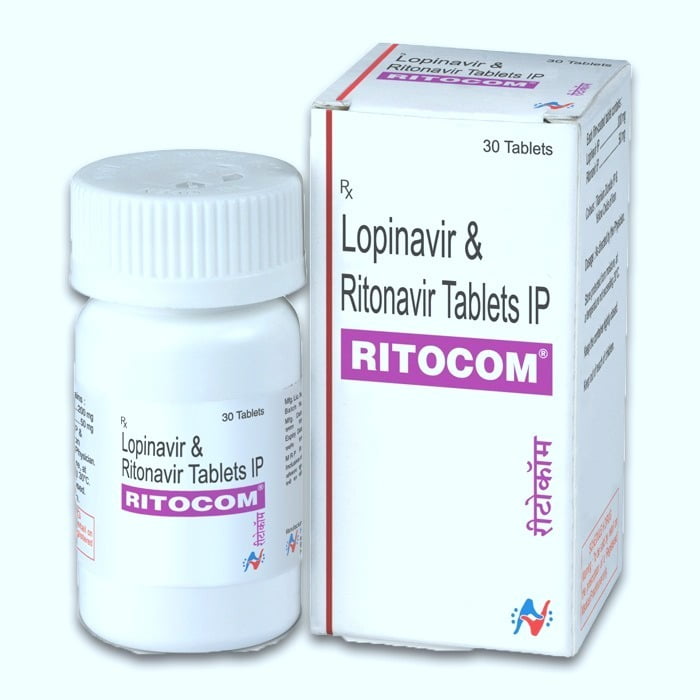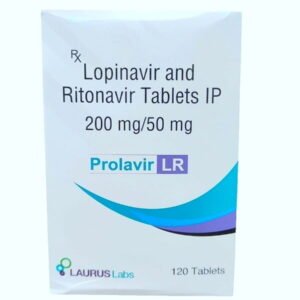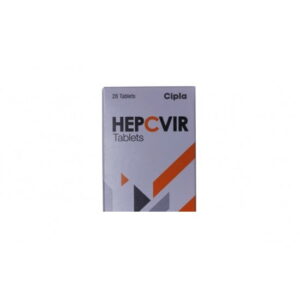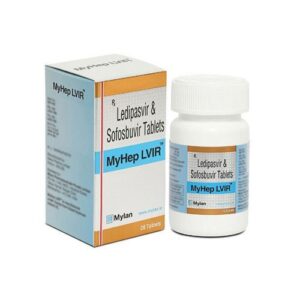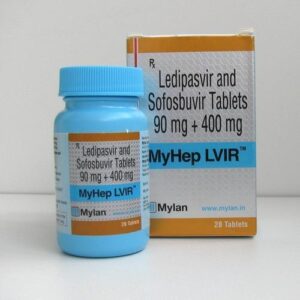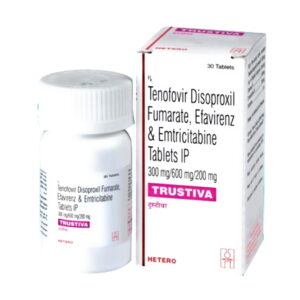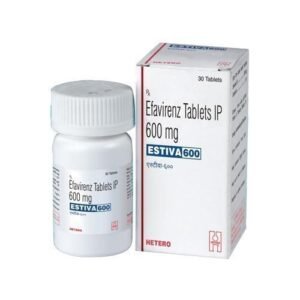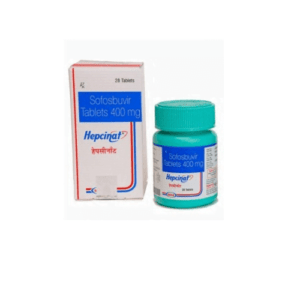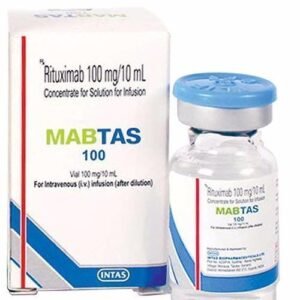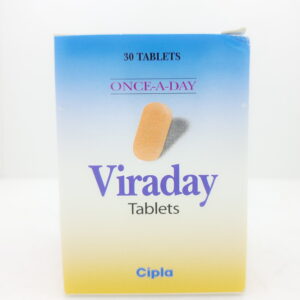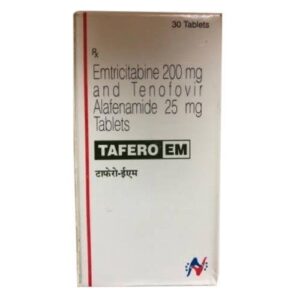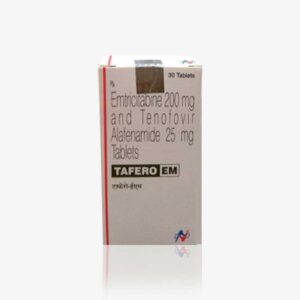Last Updated on July 20, 2024 by admin
Introduction of Ritocom Tablet
Ritocom Tablet is pivotal in the arsenal of antiretroviral medications used to treat Human Immunodeficiency Virus (HIV) and Acquired Immunodeficiency Syndrome (AIDS). Classified as protease inhibitors, these drugs work by inhibiting the action of the protease enzyme, which is essential for the replication of the HIV virus. This inhibition helps to manage the virus, slow its progression, and significantly improve the quality of life for individuals infected with HIV.
The importance of Ritocom Tablet in combating HIV cannot be overstated. These medications have transformed HIV from a fatal disease to a manageable chronic condition. By reducing the viral load to undetectable levels, these drugs help prevent the deterioration of the immune system, thereby reducing the risk of opportunistic infections and other HIV-related complications.
The history and development of Ritocom Tablet is noteworthy. Ritonavir was first approved by the U.S. Food and Drug Administration (FDA) in 1996, marking a significant milestone in HIV treatment. Lopinavir, on the other hand, was developed later and approved in combination with Ritonavir in 2000. This combination, marketed under the brand name Kaletra, has been a cornerstone in antiretroviral therapy (ART) regimens. The development of these drugs involved extensive research and clinical trials, underscoring their efficacy and safety in managing HIV.
As a combination therapy, Ritocom Tablet offer a synergistic effect, where Ritonavir boosts the effectiveness of Lopinavir by inhibiting its metabolism. This pharmacokinetic enhancement allows for a more potent suppression of the HIV virus, making the combination a preferred choice in many ART regimens. The advent of these medications has not only improved patient outcomes but also paved the way for further advancements in HIV treatment strategies.
Uses of Ritocom Tablet
Ritocom Tablet are primarily utilized in the management of HIV-1 infection. These medications are protease inhibitors, which function by inhibiting the protease enzyme that HIV needs to multiply. By hindering this enzyme, the drugs reduce the amount of virus in the body, thereby helping to maintain a healthier immune system and reducing the likelihood of HIV-related illnesses. Ritonavir is often used to boost the effectiveness of Lopinavir, enhancing its ability to fight the virus.
These tablets are typically administered as part of a combination therapy regimen. This approach involves the simultaneous use of multiple antiretroviral drugs, which is crucial for several reasons. Firstly, it helps to prevent the development of drug-resistant strains of HIV. Secondly, combination therapy has been shown to be more effective in suppressing the viral load compared to monotherapy. Consequently, patients achieve better long-term health outcomes when these medications are used in conjunction with other antiretrovirals.
Ritocom Tablet are particularly significant for patient populations with specific needs. For example, individuals who have developed resistance to other antiretroviral medications may benefit from this combination. Additionally, these tablets are frequently prescribed to patients with advanced HIV infection or those with a high viral load. Pediatric patients, including infants and children, can also be treated with age-appropriate formulations of these medications, ensuring that the treatment is tailored to their unique physiological requirements.
Overall, the use of Ritocom Tablet is a cornerstone in the comprehensive management of HIV-1 infection. By leveraging the synergistic effects of combination therapy, these medications contribute significantly to improving patient health, prolonging life expectancy, and enhancing the quality of life for those affected by HIV.
SIDE EFFECTS OF Ritocom TABLET
Common side effects of Ritocom
- Taste change
- Headache
- Nausea
- Vomiting
- Diarrhea
- Stomach pain
- Increased liver enzymes
- Increased blood lipid level
- Peripheral neuropathy (tingling and numbness of feet and hand)
Directions for Use
Proper usage of Ritocom Tablet is crucial for the medication’s effectiveness and the patient’s safety. The recommended dosage typically involves taking the tablets as prescribed by a healthcare professional. It is essential to adhere to the specific dosage and schedule provided by your doctor to ensure optimal results and to minimize the risk of side effects.
Ritocom Tablet should be taken at regular intervals, usually once or twice daily, as directed by your healthcare provider. Consistency in taking the medication at the same time each day helps maintain stable levels of the medication in your bloodstream, which is vital for its effectiveness. Ensure you follow the prescribed schedule without making any changes unless advised by your doctor.
The tablets can be taken with or without food; however, taking them with food may help reduce possible stomach upset. Swallow the tablets whole with a glass of water; do not crush, chew, or break them. If you experience difficulty swallowing the tablets, consult your healthcare provider for alternative options.
If you miss a dose, take it as soon as you remember. If it is almost time for your next dose, skip the missed dose and resume your regular dosing schedule. Do not double up on doses to make up for a missed one, as this could increase the risk of side effects. In case of an overdose, seek immediate medical attention or contact your local poison control center. Symptoms of overdose may include severe dizziness, fainting, or difficulty breathing.
Maintaining open communication with your healthcare provider is essential throughout your treatment with Ritocom Tablet. Regular follow-up appointments will help monitor your progress and adjust the dosage if necessary. Always keep your healthcare provider informed of any side effects or concerns you may have while taking this medication.
SAFETY ADVICE

Alcohol

Pregnancy

Breast feeding

Driving
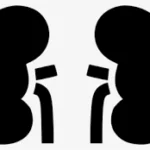
Kidney

Liver
![]() CHILDREN CAUTION
CHILDREN CAUTION
UNSAFE
Ritocom Tablet is not recommended for use in children and adolescents below 18 years.
![]() Ritocom Tablet Habit Forming : NO
Ritocom Tablet Habit Forming : NO
WHAT IF YOU FORGET TO TAKE Ritocom TABLET?
Benefits of Ritocom Tablet
Ritocom Tablet offer significant benefits in the management of HIV infection. One of the primary advantages of these medications is their ability to reduce the viral load in patients. By inhibiting the protease enzyme, these drugs prevent the replication of the HIV virus, thereby decreasing the amount of virus present in the body. This reduction in viral load is crucial in managing the infection and preventing the progression of the disease.
Another significant benefit is the increase in CD4 cell counts. CD4 cells, also known as T-helper cells, play a vital role in the immune system by fighting off infections. HIV targets and destroys these cells, leading to a weakened immune system. Ritocom Tablet help preserve and increase the number of CD4 cells, thereby enhancing the immune function of individuals living with HIV. Improved CD4 cell counts are associated with better health outcomes and a reduced risk of opportunistic infections.
Patients have reported substantial improvements in their overall health and quality of life after starting treatment with Ritocom Tablet. For instance, John, a 35-year-old patient who has been on this medication regimen for over a year, shared, “Since I began taking Ritonavir and Lopinavir, my energy levels have soared, and I feel more capable of managing my daily activities. My viral load is undetectable, and my CD4 count has significantly improved.”
These medications not only help in controlling the virus but also enable patients to lead healthier and more productive lives. The combination of reducing viral load and increasing CD4 cell counts makes Ritocom Tablet an essential component in the treatment of HIV infection. By improving immune function, these drugs offer patients a better chance at a longer, healthier life.
Storage
Proper storage of Ritocom Tablet is crucial to maintaining their efficacy and safety. These medications should be stored at room temperature, ideally between 20°C to 25°C (68°F to 77°F). To ensure the tablets remain effective, avoid exposing them to excessive heat, moisture, or direct sunlight. It is advisable to keep the tablets in their original container, as it is designed to protect them from environmental factors that could compromise their quality.
Another essential consideration is to always keep Ritocom Tablet out of reach of children and pets. The medication can be harmful if ingested by individuals for whom it is not prescribed. For added safety, store the container in a high, locked cabinet or another secure location.
When it comes to expired or unused Ritocom Tablet, it is important to dispose of them responsibly. Do not flush the tablets down the toilet or pour them into a drain, as this can contaminate water supplies. Instead, follow local guidelines for medication disposal, which may include returning the medication to a pharmacy or participating in a drug take-back program. If such options are not available, you can mix the tablets with an undesirable substance, such as coffee grounds or cat litter, and place the mixture in a sealed plastic bag before disposing of it in the household trash.
By adhering to these storage guidelines, you can help ensure that Ritocom Tablet remain safe and effective for their intended use. Proper storage and disposal are critical steps in minimizing the risk of accidental ingestion and environmental contamination.
Medicinal Benefits
Ritocom Tablet, primarily known for their efficacy in treating HIV, also exhibit several secondary medicinal benefits. Beyond their primary use in antiretroviral therapy, these tablets have been observed to offer therapeutic advantages in various other contexts, supported by a growing body of clinical research.
One notable secondary benefit is their potential in the management of certain viral infections. Research has indicated that Ritonavir and Lopinavir exhibit antiviral properties that extend beyond HIV. For instance, during the COVID-19 pandemic, initial studies explored the repurposing of these drugs to combat the novel coronavirus. Although subsequent research provided mixed results, the exploration highlighted the broader antiviral potential of Ritonavir and Lopinavir.
Additionally, Ritonavir is known to enhance the efficacy of other medications by inhibiting the cytochrome P450 enzyme system. This pharmacokinetic boosting effect allows for lower doses of co-administered drugs, thereby reducing potential side effects and improving overall treatment adherence. This property has been leveraged in various treatment regimens, particularly in managing chronic conditions where drug-drug interactions are a concern.
Moreover, off-label uses of Ritonavir and Lopinavir have been explored in oncology. Studies have suggested that these drugs may have antitumor effects, particularly in cancers that exhibit specific viral etiologies. For example, research has shown promise in utilizing these drugs against Kaposi’s sarcoma, a cancer commonly associated with HIV-infected individuals.
Further research continues to uncover additional medicinal benefits of Ritonavir and Lopinavir. These findings underscore the importance of ongoing clinical trials and observational studies to fully elucidate the potential of these antiviral agents. As the scientific community deepens its understanding, the scope of therapeutic applications for Ritonavir and Lopinavir may expand, offering new hope for patients with various health conditions.
Drug Warnings and Interactions
When considering the use of Ritocom Tablet, it is vital to be aware of the potential risks and warnings associated with these medications. These antiviral drugs, commonly prescribed for the treatment of HIV, have specific contraindications and interactions that patients must consider to avoid adverse effects.
Firstly, individuals with certain medical conditions should exercise caution or avoid using Ritocom Tablet entirely. Patients with severe liver disease, for instance, may experience exacerbated symptoms or further liver damage. Additionally, those with a known hypersensitivity to Ritonavir, Lopinavir, or any component of the formulation should not use these medications, as allergic reactions could occur.
Drug interactions are another critical aspect to consider. Ritonavir and Lopinavir are both metabolized by the liver enzyme CYP3A, making them susceptible to interactions with other medications that influence this pathway. For example, combining these tablets with drugs that strongly induce CYP3A, such as rifampin or carbamazepine, can reduce the effectiveness of Ritonavir and Lopinavir, potentially leading to treatment failure. Conversely, coadministration with potent CYP3A inhibitors like ketoconazole may increase plasma levels of Ritonavir and Lopinavir, heightening the risk of toxicity.
Additional notable interactions include medications that prolong the QT interval, such as certain antiarrhythmics, which may increase the risk of cardiac complications when used concurrently with Ritonavir and Lopinavir. Anticoagulants, antiplatelet agents, and certain herbal supplements, like St. John’s Wort, also pose significant interaction risks and should be avoided unless specifically advised by a healthcare provider.
Given the complexity and potential severity of these interactions, it is paramount that patients consult with their healthcare provider before initiating treatment with Ritocom Tablet. A thorough medication review and discussion of the patient’s complete medical history can help identify potential contraindications and interactions, ensuring safer and more effective therapy.
Side Effects of Ritocom Tablet
Ritocom Tablet, like any medication, can cause side effects. It is important for patients to be informed about the potential adverse reactions to ensure prompt recognition and appropriate management. These side effects can range from common and mild to rare and severe.
Common side effects of Ritocom Tablet include gastrointestinal disturbances such as nausea, diarrhea, and abdominal pain. Patients may also experience headaches, dizziness, and fatigue. While these side effects can be uncomfortable, they are typically manageable with supportive care. Staying hydrated, eating small, frequent meals, and resting adequately can help alleviate these symptoms. Over-the-counter medications may also be used to manage minor discomfort, but it is advisable to consult a healthcare provider before taking any additional drugs.
In some cases, patients may encounter more serious side effects. These include signs of pancreatitis such as severe abdominal pain, persistent nausea or vomiting, and elevated liver enzymes, which may manifest as jaundice or dark urine. Allergic reactions, though rare, can occur and may present as rash, itching, swelling, or difficulty breathing. Immediate medical attention is essential if these severe reactions are observed.
It is crucial for patients to communicate any side effects to their healthcare provider, even if they seem minor. This allows for proper assessment and, if necessary, adjustments to the treatment regimen. Healthcare professionals can provide guidance on managing side effects and may prescribe additional medications to mitigate adverse reactions.
In conclusion, while Ritocom Tablet are effective in treating certain conditions, they come with a range of potential side effects. Being aware of these side effects and knowing how to manage them can significantly enhance patient safety and treatment efficacy. Always consult with a healthcare provider for personalized advice and treatment adjustments.
How to Use
Ritocom Tablet are prescribed for the treatment of HIV infection, and it is crucial to adhere to the prescribed dosage and timing to maximize their efficacy. These medications are typically taken in combination with other antiretroviral drugs, and they function by inhibiting the enzymes necessary for HIV replication, thereby reducing the viral load in the body.
Patients should take Ritocom Tablet exactly as prescribed by their healthcare provider. The standard dosage is often two tablets taken once or twice daily, but this can vary based on individual patient needs and the specific regimen recommended by the doctor. It is essential to take the medication at the same times each day to maintain consistent drug levels in the bloodstream, which helps in effectively managing HIV.
To incorporate Ritonavir and Lopinavir into your daily routine, consider setting reminders on your phone or using a pill organizer. Taking the medication with food can enhance its absorption and reduce gastrointestinal side effects. If a dose is missed, it should be taken as soon as remembered, unless it is almost time for the next dose—in such cases, the missed dose should be skipped to avoid doubling up.
Common questions or concerns about the usage of Ritocom Tablet often relate to side effects and drug interactions. Patients should be aware that these tablets can interact with other medications, including over-the-counter drugs and herbal supplements. It is important to inform the healthcare provider of all medications being taken to prevent adverse interactions. Additionally, potential side effects such as nausea, diarrhea, and elevated liver enzymes should be monitored and reported to a healthcare professional if they persist or worsen.
In conclusion, following the prescribed method of using Ritocom Tablet is paramount for effective HIV management. Consistency in dosage and timing, combined with awareness of potential interactions and side effects, ensures optimal treatment outcomes.
How the Tablet Works
Ritocom Tablet operate through a sophisticated mechanism that targets the HIV virus at a molecular level. These medications are classified as protease inhibitors, a category of antiretroviral drugs that play a critical role in the management and treatment of HIV infections. The primary focus of these tablets is to inhibit the action of the protease enzyme, an essential component in the life cycle of the HIV virus.
The protease enzyme is responsible for cleaving long chains of viral proteins into smaller, functional units that are necessary for the assembly of new viral particles. By inhibiting this enzyme, Ritonavir and Lopinavir effectively halt the maturation process of the virus. Consequently, immature viral particles are produced, which are incapable of infecting new cells. This disruption significantly reduces the viral load in the patient’s body, thereby improving immune function and slowing the progression of HIV to AIDS.
Ritonavir, in addition to its role as a protease inhibitor, also acts as a pharmacokinetic enhancer. It boosts the plasma levels of Lopinavir by inhibiting the cytochrome P450 3A4 enzyme, which is involved in the metabolism of many drugs. This inhibition results in higher concentrations of Lopinavir in the bloodstream, enhancing its antiviral efficacy. The combination of these two drugs in a single tablet ensures a more potent and sustained suppression of the HIV virus.
Understanding the intricate workings of Ritocom Tablet underscores their importance in antiretroviral therapy. By targeting the protease enzyme, these medications disrupt the viral replication process, leading to a significant reduction in the viral load. This mechanism not only helps in managing the infection but also improves the overall quality of life for individuals living with HIV.
General Warnings
When considering the use of Ritocom Tablet, it is crucial to be aware of several general warnings to ensure safety and efficacy. This medication requires careful consideration, especially for specific populations such as pregnant or breastfeeding women, elderly patients, and individuals with pre-existing medical conditions.
Pregnant or breastfeeding women should consult their healthcare provider before initiating treatment with Ritocom Tablet. The potential risks and benefits must be weighed carefully, as the medication can pass through breast milk and may affect a nursing infant. For pregnant women, the healthcare provider will evaluate whether the benefits of treatment outweigh the potential risks to the unborn child.
Elderly patients may have different metabolic responses to Ritocom Tablet, necessitating close monitoring. Age-related changes in liver and kidney function can affect how the body processes these medications, potentially leading to increased side effects or toxicity. Therefore, dosage adjustments and regular follow-ups are essential for this population.
Individuals with pre-existing medical conditions, particularly those with liver or kidney diseases, should exercise caution when using Ritocom Tablet. These conditions can alter the metabolism and excretion of the drugs, resulting in increased risk of adverse effects. A thorough medical history and appropriate diagnostic tests will help healthcare providers determine the suitability of this treatment for such patients.
Additionally, it is advisable to avoid alcohol and other substances that could interact with Ritocom Tablet. Alcohol can exacerbate liver-related side effects, and certain substances may interfere with the medication’s effectiveness or increase the risk of adverse reactions. Patients should inform their healthcare provider about all the medications and supplements they are currently taking to prevent potentially harmful interactions.
In conclusion, understanding and adhering to these general warnings is paramount for the safe and effective use of Ritocom Tablet. Always consult with a healthcare provider for personalized advice and guidance tailored to your specific health needs.
Safety Advice
When taking Ritocom Tablet, it is crucial to follow comprehensive safety advice to ensure the effectiveness of the treatment while minimizing potential risks. Patients are advised to monitor their health closely while on this medication. Regular check-ups with healthcare providers enable early detection of any adverse reactions, ensuring timely intervention and management. Common signs of adverse reactions may include gastrointestinal discomfort, changes in liver function, or unusual fatigue. Should any of these symptoms arise, it is imperative to consult a healthcare professional immediately.
In addition to medical supervision, patients should consider lifestyle modifications to enhance the effectiveness of Ritonavir and Lopinavir treatment. Maintaining a balanced diet rich in essential nutrients helps support the immune system, which is particularly important for individuals undergoing antiviral therapy. Regular physical activity, as recommended by a healthcare provider, can also contribute to overall well-being and improve treatment outcomes.
Adherence to the prescribed medication regimen is paramount. Patients should take Ritocom Tablet exactly as directed by their healthcare provider, without missing doses or altering the prescribed schedule. This adherence helps maintain consistent drug levels in the body, maximizing the medication’s therapeutic efficacy.
Avoiding the consumption of certain substances is also critical. For instance, alcohol and recreational drugs may interfere with the effectiveness of Ritonavir and Lopinavir, potentially leading to adverse effects. Patients should also inform their healthcare providers about any other medications or supplements they are taking, as there could be potential interactions that require careful management.
Ultimately, a proactive approach to health monitoring, adherence to prescribed regimens, and appropriate lifestyle modifications can significantly enhance the safety and efficacy of Ritocom Tablet. Patients are encouraged to maintain open communication with their healthcare providers to address any concerns and ensure optimal treatment outcomes.
Dietary Considerations
Dietary considerations are pivotal for patients taking Ritocom Tablet to ensure the medication’s optimal efficacy and minimize potential side effects. These antiviral medications are commonly used in the management of HIV, and their interaction with various foods can influence their effectiveness and the patient’s overall well-being.
Firstly, it is crucial for patients to maintain a balanced diet, rich in essential nutrients. A balanced diet supports the immune system and general health, which is particularly important for individuals managing chronic conditions like HIV. Incorporating a variety of fruits, vegetables, whole grains, lean proteins, and healthy fats can provide the necessary vitamins and minerals to support the body’s overall function.
Additionally, certain foods should be avoided or consumed in moderation due to their potential to interfere with Ritocom Tablet. High-fat meals, for instance, can increase the absorption of Ritonavir, potentially leading to increased side effects. It is advisable to take these medications with light meals to avoid such interactions. Furthermore, grapefruit and grapefruit juice should be avoided as they can inhibit the enzymes that metabolize these drugs, leading to higher levels in the bloodstream and an increased risk of adverse effects.
Some foods might enhance the medication’s effectiveness or help manage its side effects. For example, foods high in fiber can aid in managing gastrointestinal side effects such as diarrhea, a common issue associated with these medications. Incorporating soluble fiber from sources like oats, apples, and beans can help regulate bowel movements and reduce discomfort.
Hydration is another critical consideration. Adequate fluid intake can assist in minimizing side effects such as dry mouth and help maintain overall hydration, which is vital for general health and well-being. Patients are advised to drink plenty of water throughout the day.
In summary, while taking Ritocom Tablet, maintaining a balanced diet, avoiding certain foods, and managing gastrointestinal side effects through dietary choices can significantly enhance the effectiveness of the medication and improve the patient’s quality of life.
FAQ Ritocom tablet details provided:
1. What is the use of Ritocom tablet?
A: Ritocom tablet is used to treat HIV infection. It contains a combination of lopinavir and ritonavir, which are antiviral medications that prevent the HIV virus from multiplying in the body.
2. When is the best time to take Ritocom tablet?
A: Ritocom tablet is usually taken with food to enhance absorption. It is important to follow the dosage instructions provided by your healthcare provider.
3. What are the long-term side effects of Ritocom tablet?
A: Long-term use of Ritocom tablet may lead to potential side effects such as changes in body fat distribution, increased cholesterol levels, and potential liver problems. It is important to discuss any concerns with your healthcare provider.
4. Can you provide a review of Ritocom tablet?
A: Reviews of Ritocom tablet vary from person to person. Some individuals may experience positive results in managing their HIV infection, while others may experience side effects. It is important to consult with a healthcare provider to determine if Ritocom is the right medication for you.
5. What are the uses of Ritocom tablet?
A: Ritocom tablet is primarily used to control and manage HIV infection. It is not a cure for HIV or AIDS, but it can help reduce the risk of complications associated with the virus.
6. Can Ritocom tablet be used in combination with other medications?
A: Ritocom tablet is often used in combination with other antiretroviral medications as part of a comprehensive treatment plan for HIV infection. It is important to follow your healthcare provider’s recommendations regarding combination therapy.
7. What is the recommended dosage of Ritocom tablet?
A: The recommended dosage of Ritocom tablet may vary depending on individual circumstances and medical history. It is crucial to follow the dosage instructions provided by your healthcare provider.
8. What is Ritocom tablet used for?
A: Ritocom tablet is used for the treatment of HIV infection in adults and children. It helps to reduce the amount of HIV in the body and improve the immune system’s ability to fight off infections.
9. What is the company name of Ritocom ?
A: Ritocom is manufactured by HETERO HEALTHCARE Ltd., a global pharmaceutical company based in India.
10. How often should I take Ritocom tablet?
A: The frequency of taking Ritocom tablet is determined by your healthcare provider and is typically based on your individual medical needs. It is important to adhere to the prescribed dosing schedule.
11. what is Ritocom tablet price?
A: Ritocom TABLET is available at net rate 1249 on HIVHUB.IN, which provides free shipping all over India and also gives cash on delivery, MRP of Ritocom in the market is 4691.
I hope this FAQ provides helpful information about Ritocom tablet. If you have any further questions, feel free to ask.
References:
- AbbVie Deutschland GmbH & Co. KG, Electronic medicines compendium (EMC), [ Revised on March 2021] [ Accessed on 17th May 2023], https://www.medicines.org.uk/emc/files/pil.221.pdf
- AbbVie Inc, US Food and Drug Administration, [ Revised on December 2018] [ Accessed on 17th May 2023], https://www.accessdata.fda.gov/drugsatfda_docs/pepfar/090371PI.pdf
- KD Tripathi, Essentials of Medical Pharmacology, Antiviral drugs, 7th edition, 2013, 809 – 811.
- Goodman & Gilman’s, The Pharmacological Basis of Therapeutics, Antiretroviral agents and treatment of HIV infection, 12th edition, 2011, 1645-1654.

